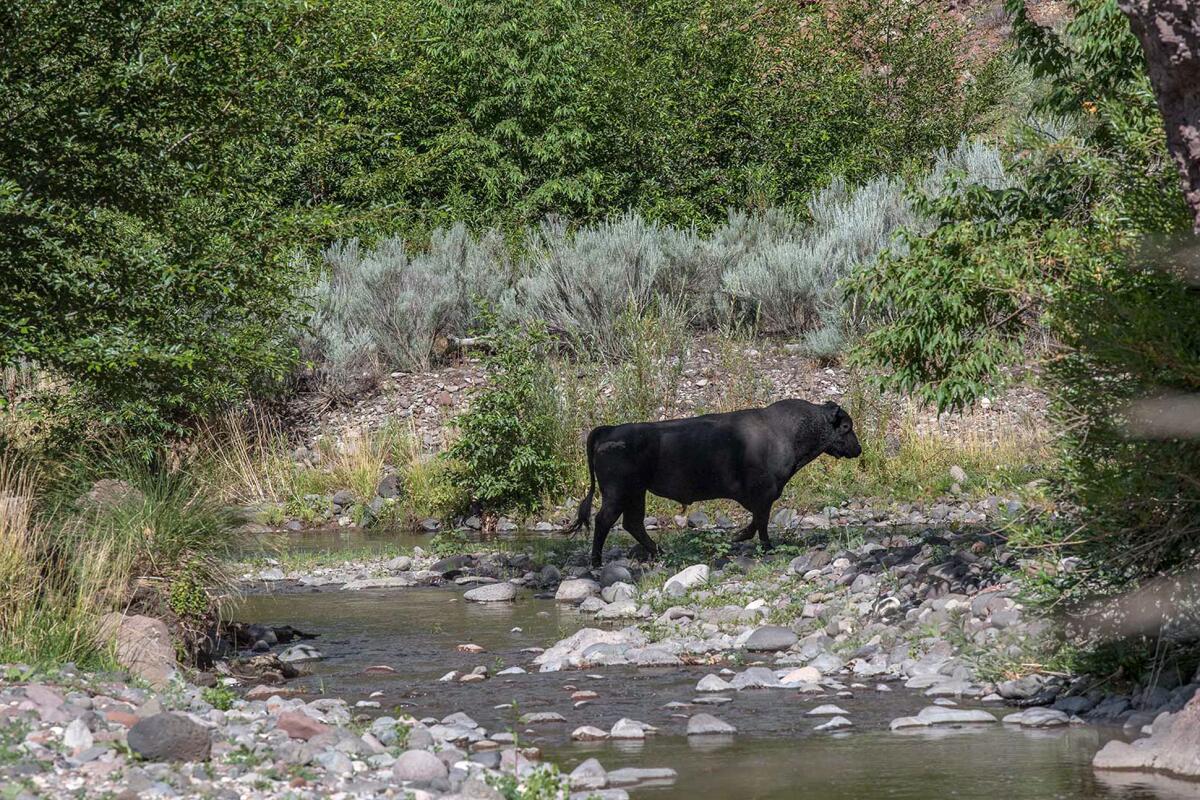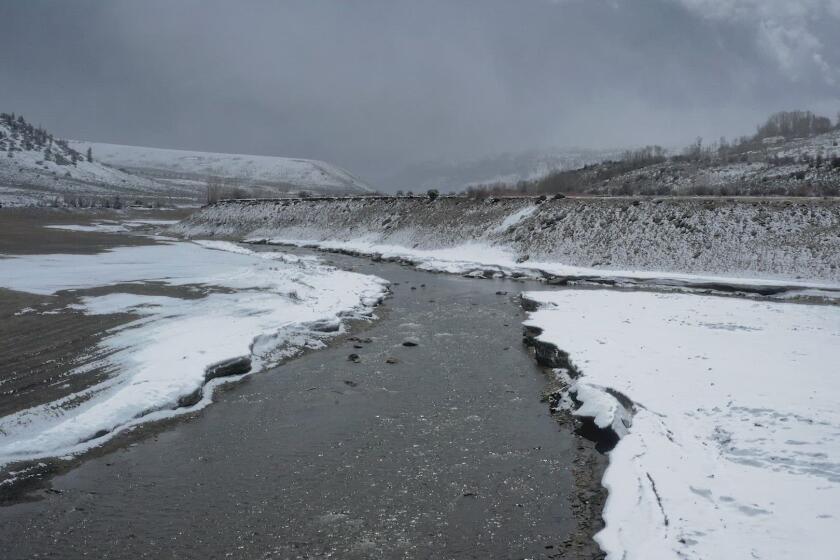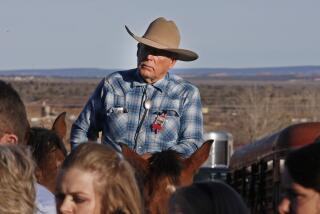Feral cattle roam New Mexico wilderness. Federal agents plan to hunt them from the sky

In the skies above the New Mexico wilderness, federal agents in helicopters this week plan to shoot and kill dozens of feral cattle, which officials say threaten protected lands and the public’s safety.
For the second year in a row, a last-ditch lawsuit by ranchers aims to halt the aerial extermination effort.
The New Mexico Cattle Growers’ Assn. and the Humane Farming Assn. are seeking a preliminary injunction against the federal government to stop the shootings, saying the practice is “cruel and inhumane” and runs afoul of state and federal laws.
Gila National Forest Supervisor Camille Howes called the decision to shoot the cattle “difficult” but “necessary to protect public safety, threatened and endangered species’ habitats, water quality, and the natural character of the Gila Wilderness.”
“The feral cattle in the Gila Wilderness have been aggressive towards wilderness visitors, graze year-round, and trample stream banks and springs, causing erosion and sedimentation,” Howes said in a statement.
From Thursday through Sunday, according to the U.S. Forest Service, agents from the Department of Agriculture will shoot about 150 heads of feral cattle roaming the Gila Wildnerness. Feral cattle are those without tags, brands or signs of ownership, according to the Forest Service.
Colorado River in Crisis is a series of stories, videos and podcasts in which Los Angeles Times journalists travel throughout the river’s watershed, from the headwaters in the Rocky Mountains to the river’s dry delta in Mexico.
It is the second year in which officials have issued kill orders for the unbranded cattle. Last year, the Forest Service said it took out 65 feral cattle.
Ranchers also worry their branded cattle could have strayed into the wilderness thanks to damaged fences after a strong monsoon season, according to the U.S. Forest Service, which said it would work with ranchers to find and remove their cattle from areas where they are not permitted.
The lethal removal of feral cattle has drawn intense debate among federal agencies, legislators, environmentalists and ranchers. Though most agree the animals are a nuisance, there is widespread disagreement over how to get rid of them.
Last year, according to the New Mexico Cattle Growers’ Assn., many of the cattle that were shot by federal agents “were not killed instantly but wandered off, bled out and then died.”
A settlement reached after last year’s operation requires the U.S. Forest Service to give 75 days’ notice of any helicopter sniper operations, which it can carry out only if it “satisfies the procedural and substantive requirements to justify such an action,” according to the New Mexico Cattle Growers’ Assn.
Vanderbilt University officials apologized for the email, saying that using the artificial intelligence chatbot to write the message was in ‘poor judgment.’
This week’s planned aerial shootings neglect the terms of the deal, the ranchers groups said, alleging that the Forest Service is breaking New Mexico animal cruelty laws and the National Environmental Protection Act by carrying out the shootings.
“Unfortunately, after a year of abiding by our settlement agreement we are now back to square one,” Loren Patterson, president of the New Mexico Cattle Growers’ Assn., said in a statement. “Throughout the past year, we offered real solutions to the Forest Service for the Gila estray problem. Those solutions would address the immediate issue, provide long-term resolution and would be humane.”
A hearing in the request for a preliminary injunction was scheduled for Wednesday.
The Gila National Forest spreads across more than 3 million acres of southwestern New Mexico, and the Gila Wilderness, the world’s first designated wilderness, is home to an extensive trail network. Feral cattle have roamed the area since the 1970s, according to the Forest Service.
More to Read
Sign up for Essential California
The most important California stories and recommendations in your inbox every morning.
You may occasionally receive promotional content from the Los Angeles Times.













